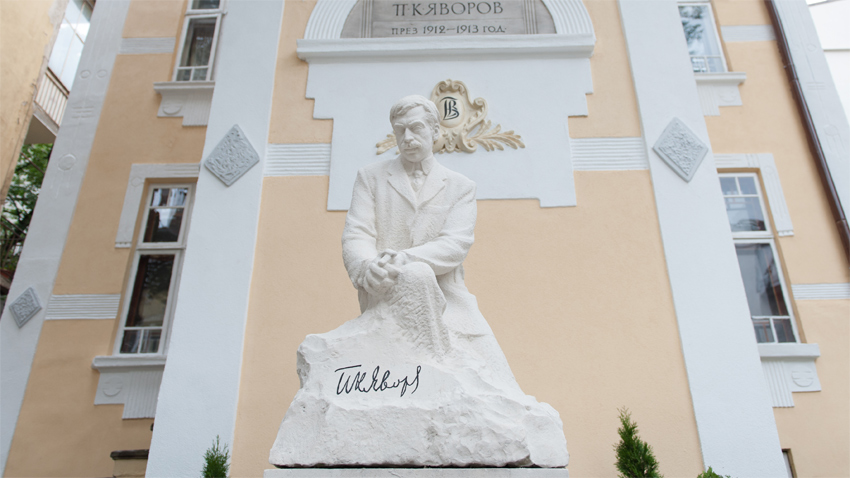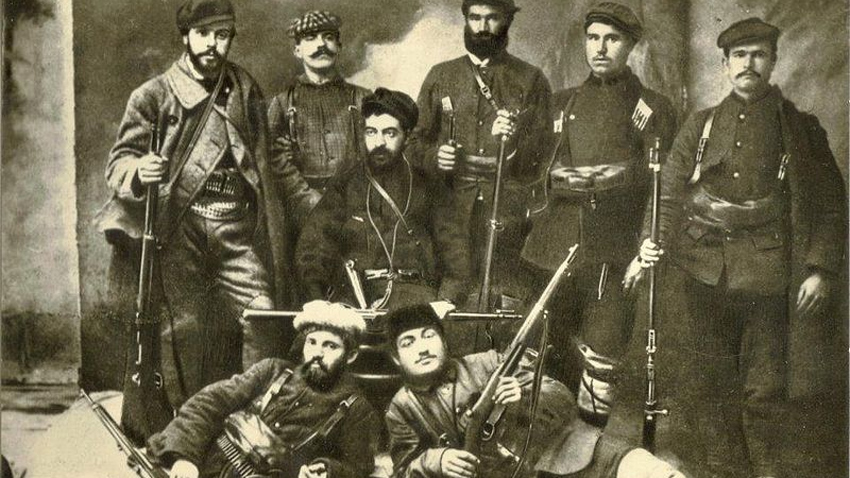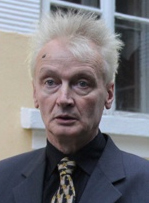
Not long ago we marked 140 years since the birth of Peyo Yavorov, one of Bulgaria’s best loved poets. His dramatic fate has always been at the focus of public attention; for the lovers of literature and most of all of poetry, his life is a constant object of interpretation.
“Interest in the poet as an individual, in different details of his life has never waned,” says Ivo Miltenov, curator of the Yavorov museum-house in Sofia. Yet, though we may know his poetic side, the details in Yavorov’s life as a revolutionary seem to evade us.
As one whole generation of Bulgarians born around the time of the liberation of Bulgaria from Ottoman domination in 1878, by the age of 17, Yavorov was consumed with the idea of liberating the Bulgarian lands in Macedonia, left within the bounds of the Ottoman Empire by force of the Berlin Treaty signed on 13 July, 1878.
 “That was when a national ideal was born – the ideal of reuniting the fragmented country,” Ivo Miltenov says. “As soon as he first entered Macedonia with Mihail Chackov and his band of revolutionaries in 1902, Yavorov published the newspaper “Freedom or death”, an illustration of his impassioned spirit. Yavorov’s revolutionary ardour was genuine, an emanation of the Bulgarian national liberation spirit, which came to a head in 1912, with the outbreak of the Balkan War.”
“That was when a national ideal was born – the ideal of reuniting the fragmented country,” Ivo Miltenov says. “As soon as he first entered Macedonia with Mihail Chackov and his band of revolutionaries in 1902, Yavorov published the newspaper “Freedom or death”, an illustration of his impassioned spirit. Yavorov’s revolutionary ardour was genuine, an emanation of the Bulgarian national liberation spirit, which came to a head in 1912, with the outbreak of the Balkan War.”
 To scholars of his work, Yavorov will be remembered most of all for his love poetry, marking the highest point in Bulgarian poetry as a whole. Most of these works were written in Nancy, France in 1906-1907 as epistles addressed to the first love of his life Mina Todorova. If we make a comparison with French poets of the age of presymbolism and symbolism like Charles Baudelaire, Paul Verlaine or Stephane Mallarme, where would Yavorov stand?
To scholars of his work, Yavorov will be remembered most of all for his love poetry, marking the highest point in Bulgarian poetry as a whole. Most of these works were written in Nancy, France in 1906-1907 as epistles addressed to the first love of his life Mina Todorova. If we make a comparison with French poets of the age of presymbolism and symbolism like Charles Baudelaire, Paul Verlaine or Stephane Mallarme, where would Yavorov stand?
“Yavorov is frequently compared to Baudelaire, as the work of the French poet is so dramatic. But the refinement of his works may be said to bring him closer to Verlaine, though that is a matter of interpretation. Yavorov liked the symbolist Maurice Maeterlinck, whose works he translated and published in Misul (Thought) magazine. But there are no elements taken from other poets in his own work, he is genuinely original.”
Until the end of the 19th and the beginning of the 20th century, Bulgarian poetry was under the influence of the national liberation struggles. As new generations were born, poetry changed, turning to the invisible, the mystic.
“Matter itself became deeper and more difficult of study, so the instruments had to be finer, and one such instrument is symbolism,” says Ivo Miltenov. Perhaps that is the reason why Yavorov is so close to the hearts of all people seeking to look below the surface of things,and see the substance.
The director of the Sofia Philharmonic Orchestra, Nayden Todorov, will conduct an opera gala in Prague tonight featuring renowned Romanian soloists. Soprano Angela Gheorghiu and tenor Teodor Ilincăi will perform arias and duets by Handel, Puccini,..
A young Bulgarian artist decided to leave this world in the middle of the past century in order to preserve his incorruptibility, even though he was defeated by the system on a purely physical level. Currently, in the gallery of the..
Musical, culinary, folklore events… the event program in Bulgaria is saturated, so much so that experts are already talking about how the alarmingly growing number of new festivals should be limited. "A clear strategy is needed: which existing..
A thirty-six-hour theater and film marathon will be presented to audiences in Sofia by the students of the National Academy for Theatre and Film Arts..
With Rosencrantz and Guildenstern Are Dead , young Boyan Kracholov - one of the most compelling contemporary Bulgarian theatre directors - makes his debut..

+359 2 9336 661
